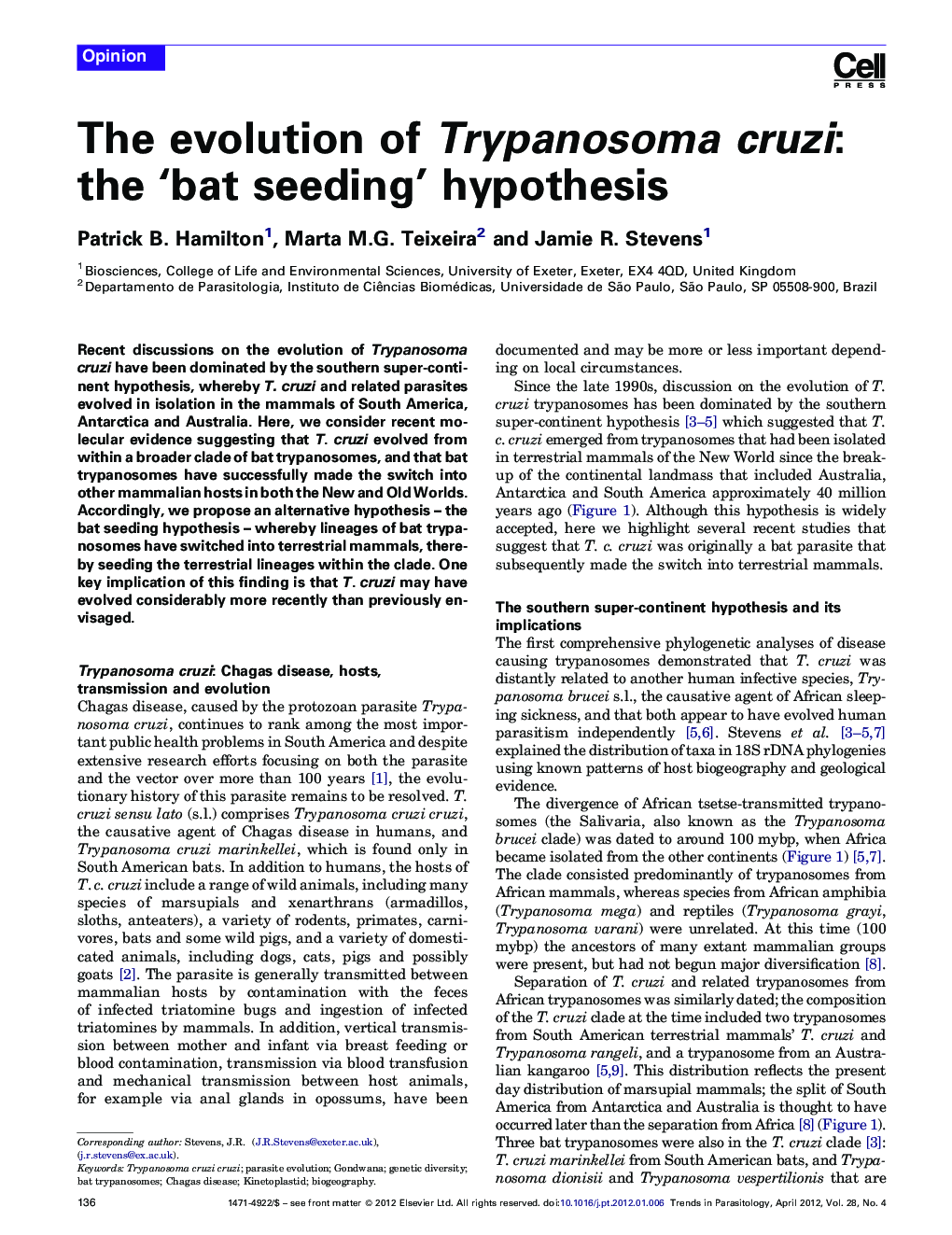| Article ID | Journal | Published Year | Pages | File Type |
|---|---|---|---|---|
| 3423391 | Trends in Parasitology | 2012 | 6 Pages |
Recent discussions on the evolution of Trypanosoma cruzi have been dominated by the southern super-continent hypothesis, whereby T. cruzi and related parasites evolved in isolation in the mammals of South America, Antarctica and Australia. Here, we consider recent molecular evidence suggesting that T. cruzi evolved from within a broader clade of bat trypanosomes, and that bat trypanosomes have successfully made the switch into other mammalian hosts in both the New and Old Worlds. Accordingly, we propose an alternative hypothesis – the bat seeding hypothesis – whereby lineages of bat trypanosomes have switched into terrestrial mammals, thereby seeding the terrestrial lineages within the clade. One key implication of this finding is that T. cruzi may have evolved considerably more recently than previously envisaged.
